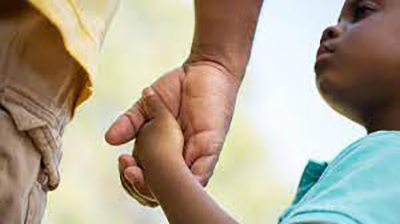
National Reporter
After 22 days in the custody of Child Protective Services (CPS), Mila Jackson, a newborn baby, was returned to her parents. But Temecia and Rodney Jackson say Mila, their third child, was taken after they decided to use midwifery care for a case of jaundice following a successful home birth.
“We’ve been treated like criminals,” Rodney Jackson said during a press conference following Mila’s removal. “This is a nightmare that I wouldn’t wish on anyone.”
Mila’s removal sparked nationwide concerns about the child welfare system and racial injustice, with advocates saying the Jacksons should never have had their daughter taken away.
“Systemic racism is the reason why Mila was separated from her family. Period,” Marsha Jones, executive director of the Afiya Center, a Dallas-based reproductive justice organization that advocated for the family, said in a statement.
Experts describe the child welfare system as a form of “family policing” for Black families. In 2018, Black children made up 14% of the child population but 23% of all children in foster care. And while white children represent half of the child population, they make up 44% of children in foster care.
Even though Black children are in the minority in the United States, this minority group has the largest percentage of its population in foster care. “Mila isn’t the first Black baby to be unjustly ripped away from her family, and she won’t be the last one — unless fundamental changes are made to the child welfare and criminal justice systems,” D’Andra Willis, birth justice coordinator at the Afiya Center, said.
The child welfare system is aware of the racial disparity, and state child welfare agencies are working to implement practices and strategies to curb the flawed system.
But Dorothy Roberts, professor of Africana, law and sociological studies at the University of Pennsylvania and author of “Shattered Bonds: The Color of Child Welfare,” said Black families have been entangled in the child welfare system since “the time of slavery, when Black families were routinely separated.”
“More than half of Black children can expect to be subjected to a child welfare investigation before they reach age 18. And that’s twice the rate of white children,” Roberts told Yahoo News.
CPS investigations usually occur when a report of abuse or neglect is made, but experts say most times those reports are false.
“Out of every 100 children investigated as possible victims of abuse, 91 were either screened out or they were found to be false after investigation,” Richard Wexler, executive director of the National Coalition for Child Protective Reform, explained.
Instead, in many cases, experts say, neglect and poverty are thrown into the same category.
“The United States turns to the child welfare system to respond to problems of a family crisis associated with poverty, rather than turning to less invasive and less expensive solutions, like supportive housing and income support,” Frank Edwards, assistant professor of criminal justice at Rutgers University, told Yahoo News.
The 2010 Fourth National Incidence Study of Child Abuse and Neglect found that children living in environments with low socioeconomic status, such as families with incomes below $15,000, are at a higher risk of neglect.
But experts say income support can help alleviate this problem. For instance, during the pandemic, the United States government provided the child tax credit, which reduced child poverty.
“During that period, we also saw dramatically lower rates of child welfare system involvement across the country. [But] we let that expire, and we’ve seen rates start to go back up again,” Edwards said.
Now experts and advocates are pushing to dismantle the system altogether and “replace it with a radically different approach to addressing children’s needs,” Roberts said.
“We know that the best way to address the unmet needs of impoverished children in America is to provide families with more income, to have affordable housing, to have universal health care for all families to provide childcare,” she said.
But if the system does not change, experts say Black families will continue to endure an overwhelming amount of trauma.
“We’re talking about a pounding on the door, often in the middle of the night, strangers demanding an entry sometimes accompanied by law enforcement, poking and prying into every cupboard, every room, dragging the kids out of bed and asking them questions about the most intimate aspects of their lives,” Wexler said. “And often it’s accompanied by a strip search looking for bruises, even if the allegation had nothing to do with abuse.”
While at least one in seven children experiences child abuse or neglect, according to the Centers for Disease Control and Prevention, Wexler said those cases can go unnoticed due to the overwhelming number of false reports.
“The horror stories are needles in a haystack, but our response to the horror stories is constantly to make the haystack bigger, which only makes it harder to find those needles,” Wexler said. “So those very few cases of children in real, grave danger are more likely to be overlooked. And that’s why the system makes all children less safe.”
According to a 2021 report from the Children’s Defense Fund, children are removed from their home every two minutes, and those removed are the most vulnerable children in America.
“While the Jacksons finally get moments of needed rest and joy, we’ll keep fighting against the criminalization of Black parents, children, and midwives because NO ONE should live through this nightmare,” Jones said. “The Jackson family won’t get justice until the health care providers, CPS workers, [police officers and constables], and every other person who allowed Mila to be taken from her family is held accountable.


Be the first to comment